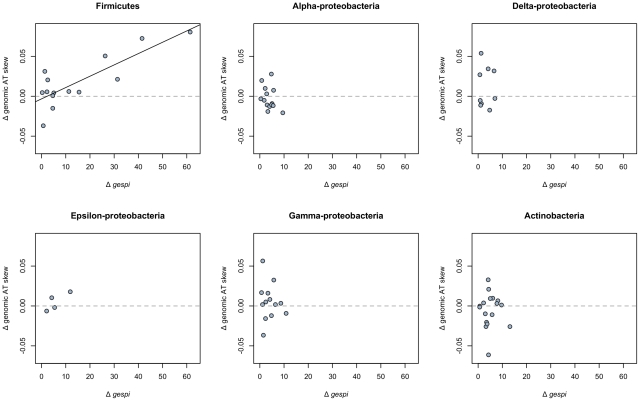Figure 7. Gene strand bias predicts the extent of positive AT skew in the Firmicutes.
Among Firmicutes, an increase in the degree of strand bias (positive Δgespi) between terminal node species results in an increase in genomic AT skew, measured with respect to the leading strand (regression slope P<0.001, r2 = 0.65; a one-sided binomial test for association between positive Δgespi and positive Δgenomic AT skew is also significant at P<0.01). Consistent with our model that strand bias dictates the extent of positive AT skew, and therefore no change in gespi should not result in a change in AT skew, we cannot reject that the y-intercept goes through 0 (intercept P = 0.628). There is no detectable significant relationship between changes in strand bias and genomic AT skew among members the following phyla (regression slope P values given in parentheses): the Alpha-proteobacteria (P = 0.196), Delta-proteobacteria (P = 0.984), Epsilon-proteobacteria (P = 0.185), Gamma-proteobacteria (P = 0.654), and Actinobacteria (P = 0.87).

